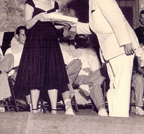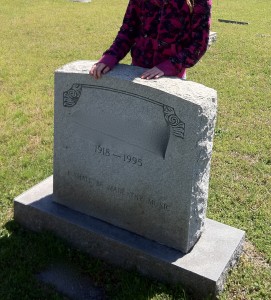I used to hate my mother.
I hated her because she didn’t give birth to me, so I didn’t feel that she was truly my mother.
I hated her because she gave birth to my sister, who could rightfully claim her as her mother. The two of them were members of a club I could never belong to.
I hated her because she was never secure in her role as my mother and so she tugged at me, mostly subconsciously, from my birth to her death, to prove to her that she was. I could never make her feel secure so I felt that I failed her. Which filled me with shame. Which made me angry. So I pushed her further away. And she came after me. And I pushed her away, harder. And I felt guilty. And I hated her for that.
Growing up, I couldn’t make sense of any of this. Even if I had, I wouldn’t have had the language to talk about it. And I don’t think my mother could have heard it.
Which wasn’t her fault. She was pelted by the longest, and worst menopause in the history of women. She had, in my humble opinion, an undiagnosed, unmedicated mood disorder. She had a husband who loved her, but who was completely overwhelmed by the depth of her need.
She’d had many losses in her life — the loss of financial security due to the Depression; the loss of her father, who died when she was 15; the loss of her fertility after my sister was born.
A child of the Depression and Southern Presbyterian missionaries, my mother was suspicious of therapy, which she saw as a threat to religion. And even if she had been inclined to spend some time on the couch, or wander into a support group, those options were either limited or non-existent back when she really needed them.
So she soldiered on, compulsively cleaning and care-taking and multi-tasking. A chronic insomniac, she stayed up for hours every night. When she returned home from her job teaching music to elementary school students, she spent her afternoons in bed, watching Bonanza reruns and eating bags of Peanut M&Ms.
My mother had frequent sobbing episodes. But when she wasn’t crying, she was singing, laughing, and filling a room.

Her exuberance and determination muscled their way across boundaries. She was the first to lend a hand to those in need, whether that involved opening her pocketbook, mentoring disenfranchised individuals, or writing letters to exploitive CEOs and policymakers informing them of the error of their ways and offering suggestions for improvement.
I went to the private K-12 school where my mother taught lower school music.
She eschewed the Lily Pulitzer wardrobe of my peers’ mothers, favoring flamboyant Mexican shawls, chunky leather belts with silver buckles, and, in the winter, a fur fez-like hat that made her tower over a crowd. She felt it was her Christian duty to interrupt rowdy teenagers in the hallway and admonish them for taking the name of the Lord in vain.
This was, as you can imagine, just the slightest bit embarrassing.
My mother couldn’t bear to see me struggle, and her discomfort only compounded mine. Once I caught her in the school lobby dressing down a Mean Girl who had targeted me. An ex-boyfriend confided that after I broke up with him, my mother pulled him aside after Assembly, and tearfully begged him to get me back so we could go to the prom together.
The boundaries between us were so blurry that I couldn’t tell where she ended and I began, or whose feelings were whose.
I went into therapy in college, and stayed for many years. I’m not sure if those were just the blame-your-mother days of therapy, or if I just had therapists who didn’t tell me my it’s-all-my-mother’s-fault refrain was tiresome. Whatever the case, I convinced myself that I needed to distance myself from my mother for my psychological survival.
She never stopped trying to win me back. She wrote letters, sent gifts, called and chatted about the weather and the dogs and the books she’d been reading, while I sat on the other end of the phone, responding with hostile silence.
Mom had a triple bypass when I was in my early 20s and she never really recovered. But that didn’t stop her from trying to cross the great divide between us. Even after her first devastating stroke four years before she died, she wrote me letters in an agonizing, barely legible scrawl.
My mother met Prince only once before her stroke. In hindsight, I think what came across as Prince’s indifference to my family might have been his uncertainty over what to do with people who wanted to get to know him for who he was, not for who he was related to.
She couldn’t hide her misgivings about our relationship. She cornered me in the kitchen, fighting back tears.
“He’s cold,” she said. “But so are you.”
My mother was too sick to go to our wedding and she died soon after our first anniversary. My grief was weirdly muted, buffered by the wall that had been between us.
I’ve often wondered what different turn my life might have taken if she had been alive and well when I got divorced. She would have dogged the Machiavellis, showing up at their doorstep to straighten them out, telling them in her strict school teacher tone that they should be ashamed of themselves and call off the hate missiles this instant! She would have made Luca her special project, visiting often to talk to him about good character and good books. She would have pulled on her Supermom Cape and for once, I would have clasped her legs in gratitude.
During the years before Luca went to wilderness camp and was finally able to articulate the loyalty bind he’d been trapped in, he told me he hated me on a daily basis. I wondered if this was mother-blame karma that had taken up permanent residence on my shoulders.
I realized then what my mother had endured. I understood how wrenching it is to go from being your child’s love object to the object of scorn. And I realized how important it is to keep loving in the face of so much animosity.
When it became clear that Prince had embarked on a scorched-earth mission, my niece wrote Luca a letter about Grandma Eleanor, so he would know what it would have been like to have her in his life. It’s still sealed, as she intended for him to be old enough to appreciate it.
Later this week, Luca flies in from boarding school for his first home visit. A visit that just happens to coincide with Mother’s Day. Atticus is clearing out so that Luca, Franny and I can be together just the three of us.
We will go to Mother’s Day brunch and over eggs and French toast I will take out the letter. I will share with him my niece’s remembrance of my mother and I’m sure I will cry at things I forgot I remembered. Luca is a teenager, so he probably will be more interested in the cute girl at the next table.
But it doesn’t matter if the meaning rolls over him. For so many years who my mother was, and what she stood for, the best parts of her, rolled over me too. Now her spirit has come back around, like a boomerang.
It’s funny how relationships keep evolving even after one person has died. I feel closer to my mother now than I ever did when she was alive. The anger feels so pointless, and most of it has slipped away. It has been replaced by emapthy, fondness for her quirks, and immense gratitude — that she kept giving even when she got nothing in return.
I wish she were alive so I could tell her, finally, what she so badly wanted to hear.
Happy Mother’s Day, Mom. You were the greatest. I love you.



You made me cry
This is a tough one to read, especially before Mother’s Day.
My own mother was a little nuts, or more than a little. Had she been born 10 or 15 years later, I suspect she would’ve been diagnosed with some sort of chemical imbalance, and life would’ve been very much different.
It’s hard to love someone who hurts you. It’s hard as a child, and hard as an adult. Even as an adult, my mother continued to do her damage so, I understand how these shadows shift and shuffle but may never leave. And even when our own mothers are gone – both of my parents are gone now – we live with the legacy of not enough love from a parent, or not the right sort of love, and our own desire to hang on to the love we can identify, still aware of our need to give it – and receive it.
WOW! That was one hell of a post, Pauline. As a mother of 2 adult daughters and have stuggled the majority of my life with both mental health & past substance abuse issues, I applaud you & feel the pain a parent goes through under these circumstances. Due to the fact that I did a horrible job parenting my oldest daughter, we do not have contact. This is by HER choice, not mine. I told her that for my part I will be open to contact at any time. Unfortunately, this also means that I’ve yet to meet my 5 month grandson or his sister, who passed away after only a matter of weeks after her birth. That said, I’m grateful beyond belief that my younger daughter & I have a good relationship, in spite of the facts of their upbringing.
I hope you and yours have a wonderful Mothers Day weekend.
Blessings……
A shot through the heart, this. I think often of Viktor Frankl’s dictum: what is to give light must endure burning. How hard it is to burn our way through pain to forgiveness.
I think I have the opposite problem with my mom- I wish that she could learn how to love me! I know the natural response is to say that all mothers love their children, but in my case it’s definitely not true, and it’s something that I’ve struggled with for a very long time. The upside is that it’s made me HYPER aware of how I treat/raise/interact with my own daughter (what you posted about your daughter and making sure she knows how important it is to make her own money really resonated with me) and it’s taugh me what NOT to do as a parent.
I guess I will come to terms with not spending more time with my paternal grandmother eventually. I was just in college when my grandmother died, I know I was just being young and stupid. With my paternal grandfather I still could go see him, but now that I’m older I feel the tension between my dad and him. I don’t know what it is, but I can’t stand it. I do send him cards and email him to try and assuage my guilt. I’m glad I’m close to my parents though.
I guess this is just something we live with and keep going. Thanks for posting this. I hope you enjoy the time with your kids
It’s definitely true that some mothers are just limited in their ability to show love properly. But that’s great that you were able to identify what you wish you’d gotten and that you work to give that to your daughter. You could have gone the other way and been bitter.
thank you!
Hey, Pauline,
Once again, we are absolutely singing from the same song book. My mom was raised Christian Scientist, so that had its own weirdness. She loved me, wanted me to be her, was terrifically funny and beautiful and bought me all my clothes until she died when I was 40. And she was fearful, squashed all of my boisterous self in trying to make me equally fearful, cheered me on and undermined me at one and the same time. I loved her and was destroyed by her. I wrote my whole first novel about her, trying to get at the complex calculus of loving a fearful, narcissistic, adoring mom whose gifts are my gifts, whose faults I have had to forgive to survive.
Kind of takes a lifetime to work through, doesn’t it? Also, one wonders about the connection between being raised by this kind of benign, well-meaning narcissist and choosing a spouse that is of the toxic variety.